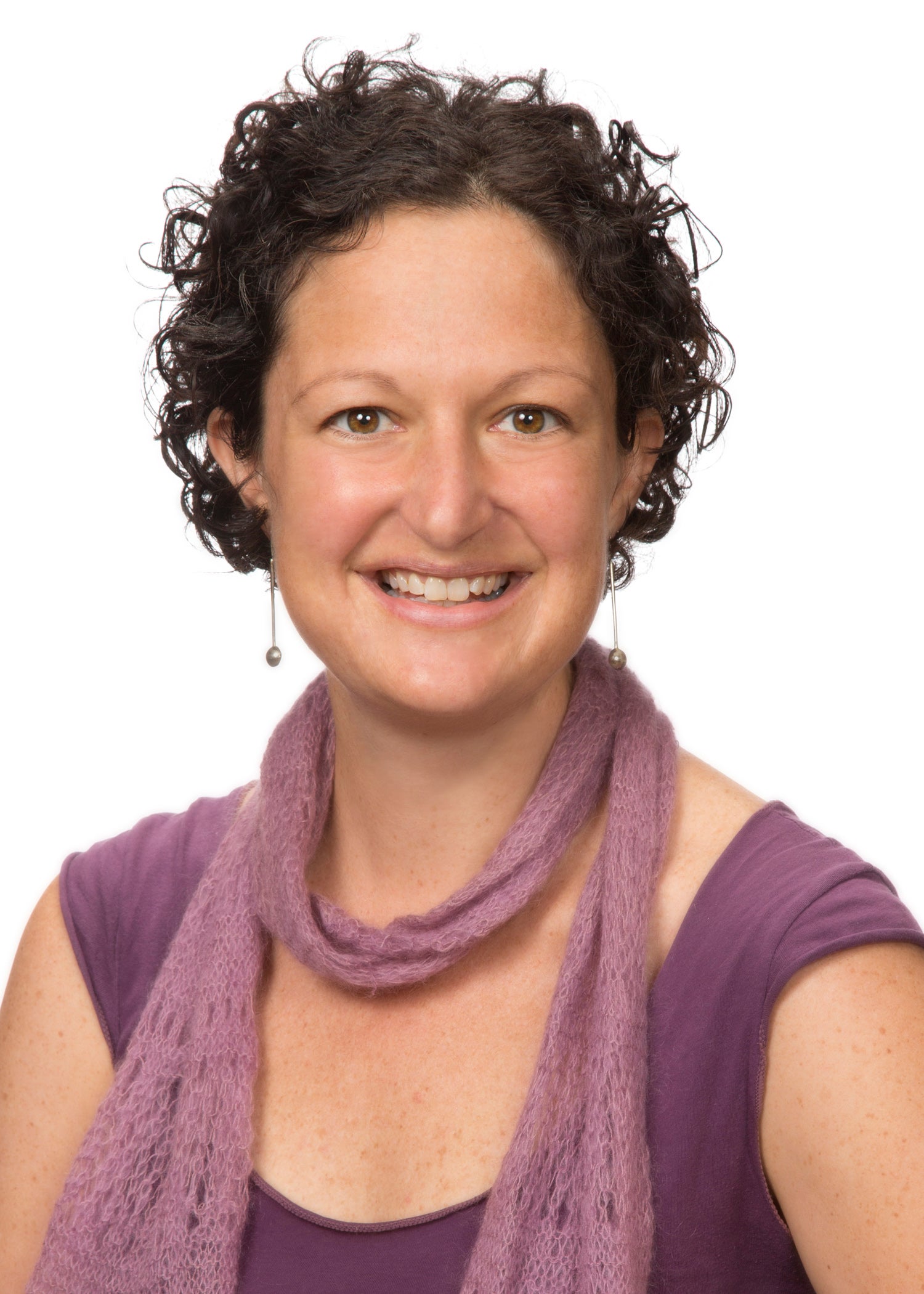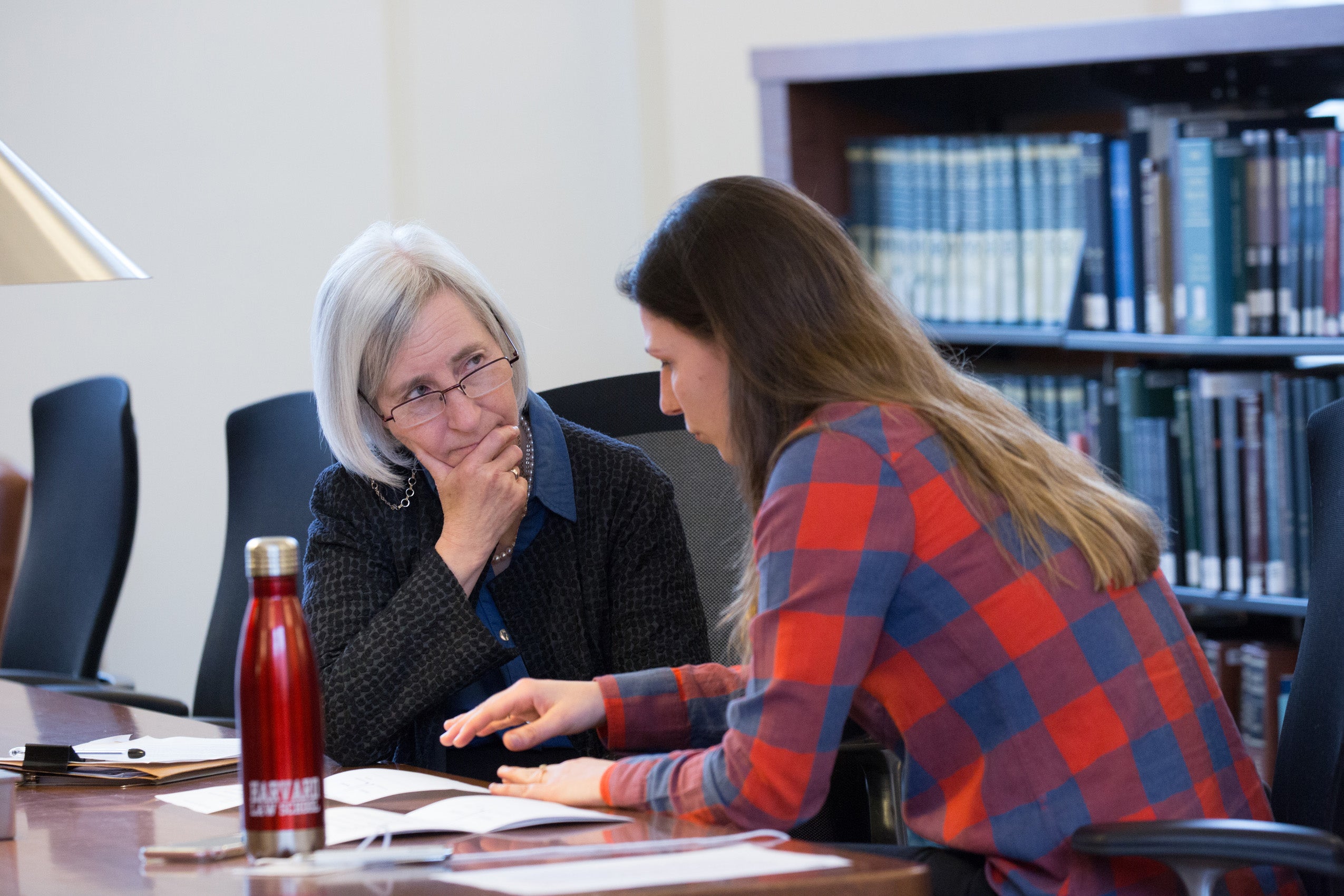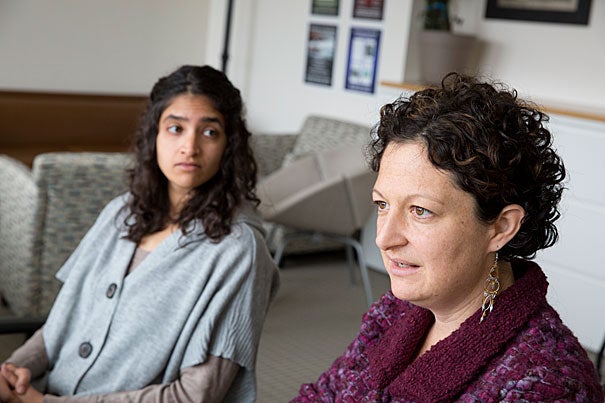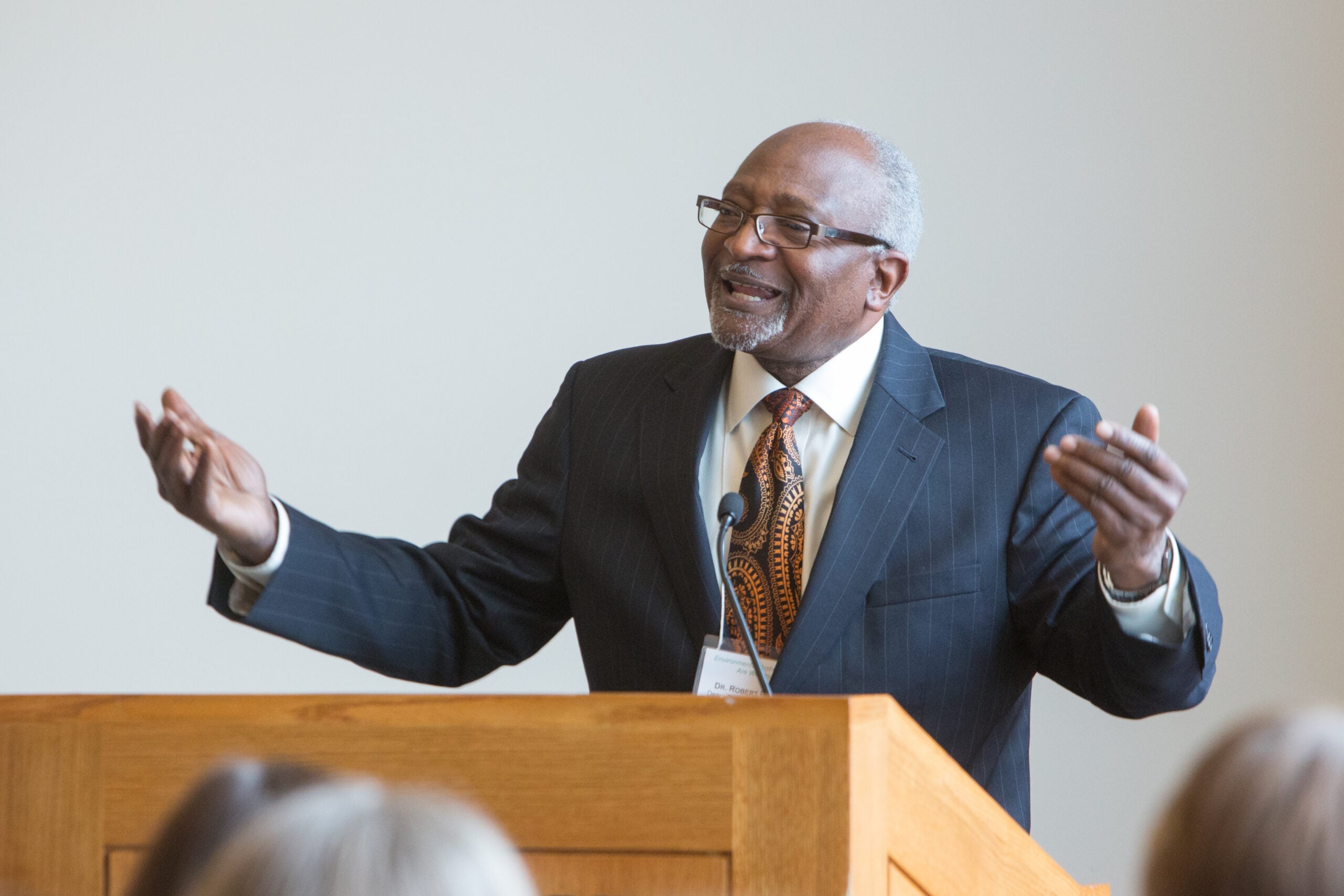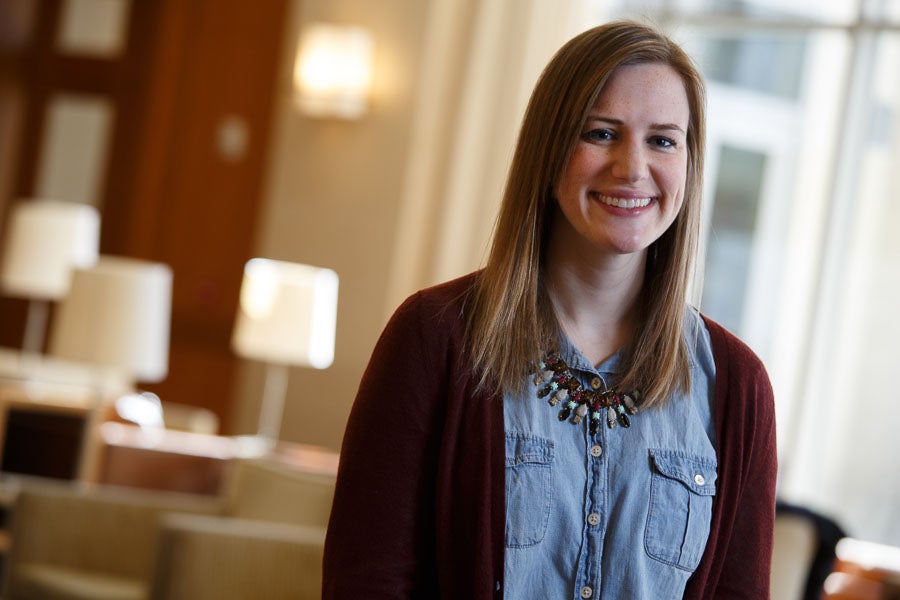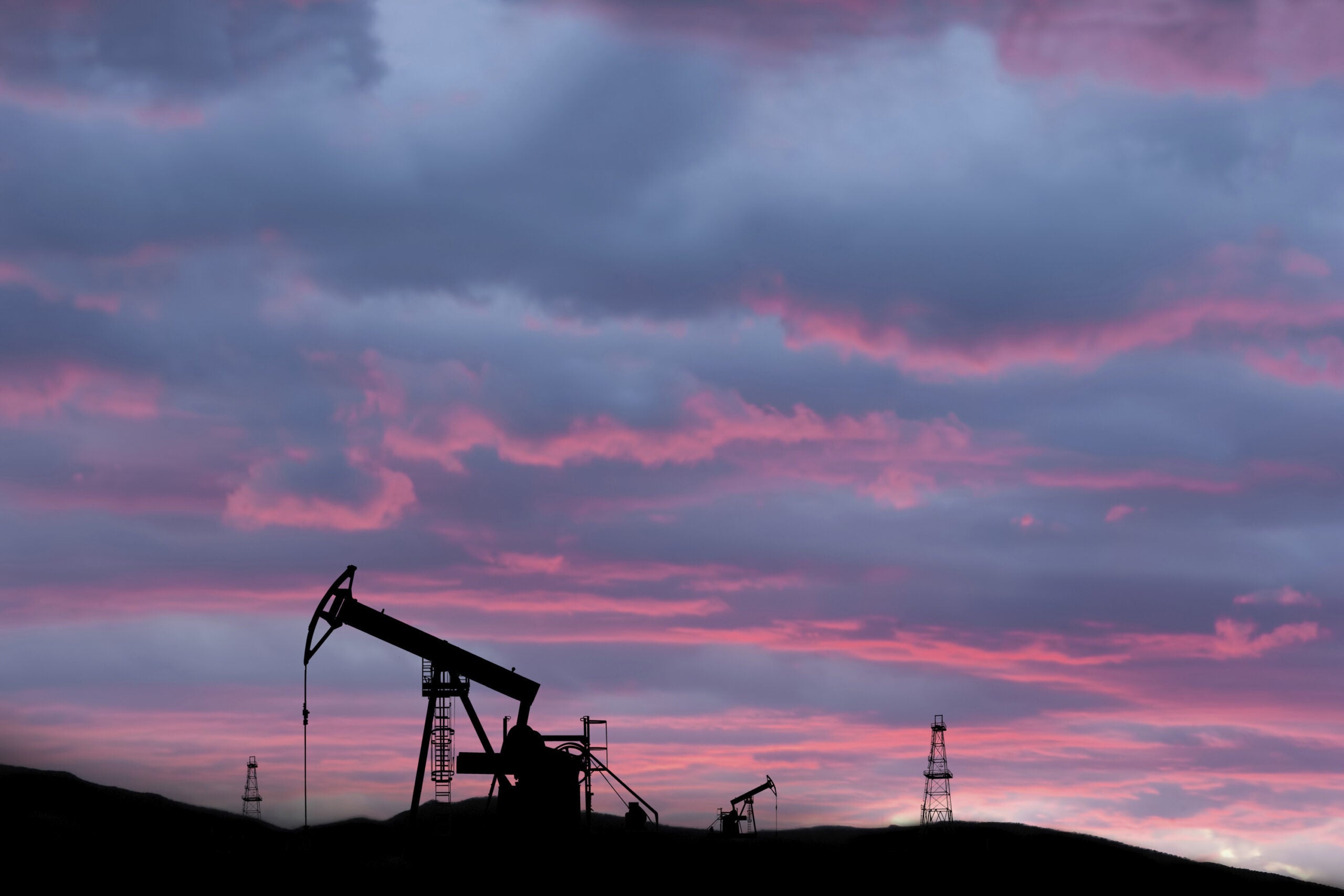People
Kate Konschnik
-
States’ Data on Fracking Well Spills Inadequate for Comprehensive Study, Researchers Say
February 22, 2017
The nation's regulation of oil and gas development is a mish-mash of disjointed state oversight that makes it difficult to quantify the environmental impacts of drilling. A new study highlights just how inconsistent spill reporting is, showing that the range in requirements makes it impossible to compare states or come up with a comprehensive national picture..."It's quite scattershot the amount of information being collected, the form in which it's being collected and the way in which it's being shared with the public," said Kate Konschnik, a co-author of the study and director of the Harvard Environmental Policy Initiative.
-
Thousands of spills at US oil and gas fracking sites
February 22, 2017
Up to 16% of hydraulically fractured oil and gas wells spill liquids every year, according to new research from US scientists. They found that there had been 6,600 releases from these fracked wells over a ten-year period in four states. The biggest problems were reported in oil-rich North Dakota where 67% of the spills were recorded. The largest spill recorded involved 100,000 litres of fluid with most related to storing and moving liquids..."Analyses like this one are so important, to define and mitigate risk to water supplies and human health," said Kate Konschnik, another author on the paper from Harvard Law School's Environmental Policy Initiative.
-
While policy questions have taken a back seat to controversy over the past weeks, the presidential election still offers a stark choice for those in the energy industry..."Those with an energy-themed bingo card have not been doing well," said Kate Konschnik, the founding director of Harvard Law School’s Environmental Policy Initiative. Konschnik was part of a team of experts who assembled a report on the energy issues that will be faced by the next administration, and the decisions they will need to make. From the appointment of federal regulators to the legal defense of rules and regulations, the next President's impact will be significant. And yet, said Konschnik, the myriad decisions will also meet the existing momentum of market trends, meaning direct presidential control over the energy narrative will be limited.
-
Ken Bone was right: Energy must be a priority for next president
October 13, 2016
An op-ed by Jonas Monast, Sarah Adair and Kate Konschnik. "What steps will your energy policy take to meet our energy needs, while at the same time remaining environmentally friendly and minimizing job loss for fossil power plant workers?" Like it or not, the next president will need an answer to this question, posed by audience member Ken Bone in the second presidential debate, in the early days of his or her administration. The electricity sector that powers our country is undergoing its most significant transition since mass electrification. Last year, for the first time ever, the United States generated as much electricity from natural gas as from coal, thanks to the shale gas boom and historically low natural gas prices...Decisions by the next president will shape how the electricity sector responds to these and other changes that carry with them wide-ranging economic and environmental consequences. Yet energy policy has barely registered as an issue this election cycle despite dramatic differences in the candidates’ platforms.
-
A federal judge in Wyoming recently struck down Bureau of Land Management rules to regulate hydraulic fracturing on public and tribal lands. But while the fate of the rules is far from final—with the Obama administration immediately indicating it would appeal—the implications of the controversial decision could extend far beyond fracking and the BLM, according to environmental, legal and policy experts. In the decision, released last week, U.S. District Judge Scott Skavdahl stated the BLM, which is overseen by the U.S. Department of the Interior, has no authority to regulate the most widely used process for extracting oil and gas resources on publicly owned land..."Congress probably didn't have in mind bungee jumping or Burning Man when it gave BLM authority over public lands," said Kate Konschnik, a lecturer at Harvard Law School . But that hasn't stopped BLM from managing these activities and events as they've come up. But this ruling challenges this logic, said Konschnik, emphasizing that "hydraulic fracturing" is not directly named in BLM's authorizing statutes as part of the evidence cited for why the agency can't regulate the process.
-
HLS faculty awarded Climate Change Solutions Fund grants for multidisciplinary research
March 3, 2016
Ten research projects driven by faculty collaborators across six Harvard Schools will share over $1 million in the second round of grants awarded by the Climate Change Solutions Fund, an initiative launched last year by President Drew Faust to encourage multidisciplinary research around climate change.
-
Ten research projects driven by faculty collaborators across six Harvard Schools will share over $1 million in the second round of grants awarded by the Climate Change Solutions Fund, an initiative launched last year by President Drew Faust to encourage multidisciplinary research around climate change...This year’s winners are:...Wendy Jacobs and Alma Cohen, Harvard Law School. Jacobs and Cohen will work with existing community organizations to encourage behavior changes that meaningfully reduce greenhouse gas emissions and build social and political support for policies to mitigate climate change...Katherine Konschnik and Jody Freeman, Harvard Law School. Konschnik and Freeman’s project, called Power Shift, will help policymakers, regulators, and stakeholders design a modern legal infrastructure to support 21st-century electricity by creating and supporting a new network of expert communities.
-
Fracking research hits roadblock with Texas law
February 8, 2016
...Hydraulic fracturing involves injecting a cocktail of fluid, typically about 99 percent water, down a wellbore and into tight rock formations to help release oil and gas. The practice has revolutionized the American energy industry, but some environmentalists and public health officials have expressed concern about potential public exposure. A provision in Texas law requires the disclosure of chemicals listed as trade secrets to emergency personnel, but not to toxicologists or academics. That has left researchers like Hildenbrand frustrated with FracFocus, the Internet clearinghouse used by Texas and at least 20 other states for public disclosure of ingredients in fracking fluid...A recent Harvard University analysis of FracFocus records found companies are withholding the identities of more chemicals now than they were three years ago...Kate Konschnik, a coauthor of the study and the director of Harvard Law School's Environmental Policy Initiative, noted improvements in the quality of data in FracFocus, including fewer clerical errors. But, she said, "there were lower rates of disclosure across the board."
-
Disclosures on fracking lacking, study finds
December 16, 2015
As the growth of hydraulic fracturing, or “fracking,” transforms more rural landscapes across the heartland into industrial zones, companies are less willing to disclose the chemicals they inject into the ground, Harvard researchers have found.
-
Disclosures on fracking lacking, study finds
December 16, 2015
As the growth of hydraulic fracturing, or “fracking,” transforms more rural landscapes across the heartland into industrial zones, companies are less willing to disclose the chemicals they inject into the ground, Harvard researchers have found...But the amount of information withheld has increased the past three years, according to a study by Kate Konschnik, a lecturer and director of Harvard Environmental Law Policy Initiative, and Archana Dayalu, a Ph.D. candidate in the Graduate School of Arts and Sciences’ Department of Earth and Planetary Sciences...“A lot of oil and gas activity is happening close to cities, communities, and schools,” said Konschnik. “People are seeing this industrial activity right outside their door, they see trucks come up with chemicals, and that concerns them. They want to know what chemicals are being used in their communities. There is so much we don’t know about this activity.”
-
Legal Debate over Clean Power Plan Takes Center Stage
October 27, 2015
For months, supporters and detractors of the Environmental Protection Agency’s Clean Power Plan have been debating whether the carbon reductions are too stringent or not tough enough; whether it will compromise reliability; whether it will save struggling nuclear power plants. With Thursday’s publication of the rule in the Federal Register, another question took center stage, one whose answer could make the others academic: Does EPA have the legal authority to do what it did?...Panel moderator Kate Konschnik, director of the Harvard Environmental Policy Initiative, disagreed, saying that EPA has previously issued rules that “caused certain units to shut down.” “In particular, that was squarely at issue in a D.C. Circuit case about the cement kiln industry in the 1970s — that one type of cement plant would cease to exist because of the standards,” she said.
-
A Climate Plan Businesses Can Like
August 4, 2015
An op-ed by Jody Freeman and Kate Konschnik. With the release of President Obama’s Clean Power Plan, a flood of legal challenges will begin. Already, opponents have denounced the new rule limiting carbon pollution as unconstitutional. Behind the rattling sabers, however, there’s a quieter story worth noticing. Many big players in the electric power industry will gain more with the rule in place than if the courts strike it down. In fact, many power companies have worked with the administration to get the best possible deal, and with states to discuss compliance strategies. Given their financial interests, some of these utilities may even wind up helping the government defend the rule.
-
Transparency about fracking chemicals remains elusive
August 11, 2014
The website FracFocus.org was built to give the public answers to a burning question about the shale boom: what exactly were companies pumping down tens of thousands of wells to release oil and gas? “Like it or not, FracFocus is now one of the most comprehensive, if not the most comprehensive source of information about the chemicals being used in unconventional oil and gas development,” says Kate Konschnik, director of the Environmental Policy Initiative at Harvard Law School. In a 2013 report, Konschnik gave FracFocus a failing grade as a disclosure tool. She found that the data were often inaccurate or incomplete, and that companies were making “trade secret” claims for chemicals at one well site while fully disclosing the same chemicals at another. “Not maybe as robust a tool as one would hope if something is regulated or required by state law,” she says.
-
In June, Harvard Law School’s Emmett Environmental Law & Policy Clinic and the Environmental Policy Initiative released “Regional and Municipal Stormwater Management: A Comprehensive Approach,” a new report that analyzes options for addressing stormwater pollution at both the regional and municipal level.
-
n the spirit of Harvard University President Drew Faust’s recent focus on addressing the problem of climate change, we interviewed HLS Professor Jody Freeman, who served in the Obama administration as Counselor for Energy and Climate Change and is the co-author of a forthcoming book on global climate change and U.S. law.
-
Looking back and moving forward on Environmental Justice: A national conference (video)
April 10, 2014
In 1994, President Clinton issued Executive Order 12898, which made Environmental Justice a national priority. In recognition of the 20th anniversary of President Clinton’s Executive Order, the Harvard Law School Environmental Law Society (HELS) hosted the National Association of Environmental Law Societies (NAELS) 26th Annual Conference, on March 28–29, 2014, titled “Environmental Justice: Where Are We Now?”
-
Students and recent graduates share their experiences with the Environmental Law and Policy Program at Harvard Law and discuss the influence that participation in the range of offerings has had on their academic and professional careers in Environmental Law.
-
Changing the Climate of Environmental Law
March 7, 2014
Having completed its first phase of growth, the Harvard Law School Environmental Law and Policy Program is now looking to strengthen and build. “We’ve gone from zero to 100 in a very short period of time,” says HLS Professor Jody Freeman, program founder and director. “And I feel as if we are just getting started.”
